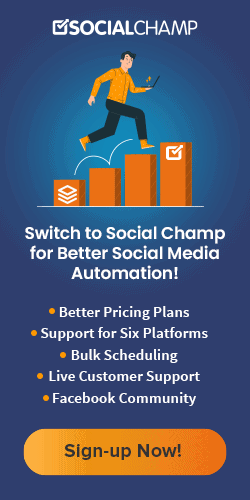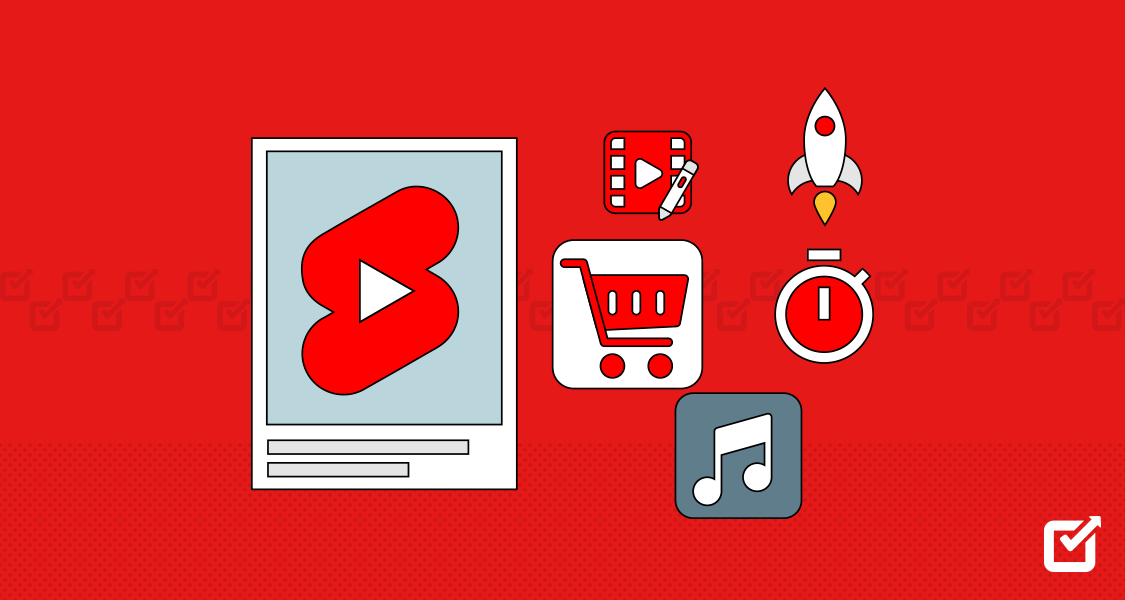In the evolving landscape of the social media world, one central platform that has been in the spotlight is going through a transformation, and it’s actually hard to ignore. It’s been a while since Facebook seems to be shedding some of its sparks.
The meta-owned platform that has connected billions of people around the world is encountering new challenges, prompting users and marketers to wonder if the era of Facebook is or will fade away wholly.
In order to gain insights, we reached out to experts within the social media domain, seeking their invaluable thoughts and insights that involved one simple question:
Have you noticed that Facebook seems a bit off the edge these days?
We’ve collected and curated the best responses here so that you can delve deeper into this subject.
Justyna Dzikowsk
Head of Marketing at Brand24

Facebook, once the epicenter of social interaction online, has seen a shift in its user dynamics. While Facebook groups remain vibrant and active, serving as hubs of community and discussion, the overall platform seems to be overshadowed by the prevalence of bots, paid likes, and an overwhelming number of sponsored posts. The algorithmic preference for paid content often pushes organic posts from pages and friends that users genuinely
follow to the background. This change dilutes the authentic user experience, making personal connections harder to maintain amidst the barrage of ads.
Furthermore, the influx of sponsored content in users’ feeds, combined with fewer posts from the pages and individuals they follow, has contributed to a sense of detachment for many. It’s no longer the personal space it once was but more of a marketplace.
The younger generation, particularly Gen Z, appears to be seeking platforms that offer more dynamic, spontaneous, and interactive content, like TikTok. The essence of platforms like TikTok, which emphasize creativity and brevity, resonates more with them.
In conclusion, while Facebook still holds significant value for certain demographics and businesses, especially in the realm of group interactions, brands need to diversify their social media strategies and be present where their target audience is most engaged.
——————–
Robin Agricola
CEO & Founder of Birdhouse Marketing & Design
On paper, Facebook is far from dead. It has more than 3 billion active monthly users—more than any other social network by far—and about 50% of those users are under the age of 34. But we’re not talking about “on paper” here. Facebook has shifted to be more of an advertising platform than a social media platform, and while there’s nothing inherently wrong with that, it does mean that users—especially young users—are more guarded on Facebook than they are on the more entertainment-based platforms, like TikTok.
Brands that want to remain viable on Facebook should focus on posting non-promotional content that informs and educates and lean on advertising to retarget users who are already engaged. It will become harder and harder to cold-target users on Facebook. And please, get on TikTok, but keep it fun, light, and entertaining. This is one of the rare platforms where strong branding could actually hurt you.
——————–
Waleria Pagowska
Product Marketing Specialist at Brand24.com
From a branding and market analysis perspective, platforms and their audiences evolve. Once the beacon of social media innovation, Facebook has seen a major shift. It seems like it has become a space where Millennials find comfort, reminiscing about the times when it was the ‘it’ platform.
But then Gen Z, with their dynamic energy and thirst for fresh content, have naturally gravitated towards platforms like TikTok that offer quick, creative bursts of entertainment. This is a general trend we see in all social media, traditional media, and results of different marketing tools. It’s all about being quick, simple, and surprising. Facebook does not have that appeal anymore, and the same thing is happening to Instagram slowly it’s basically becoming a recycle bin for TikTok.
I mean, every platform has its own unique value. Facebook still holds immense value in areas like community building and information sharing, especially with features like Facebook Groups and Marketplace. But yes, regarding sheer excitement and trend-setting, platforms like TikTok are currently leading the charge. Marketing must follow suit, and it cannot stay in one place from which audiences and clients are evaporating.
——————–
Milosz Krasinski
Managing Director at Chilli Fruit Web Consulting
In my opinion, platforms have life cycles, much like products do. Facebook, having been around since 2004, has matured, and so has its primary user base. I think it’s essential to recognize that while Facebook might not be the trendiest platform right now, it still holds a fair amount of power in the digital marketing realm.
Its ad targeting capabilities, vast user base, and integration with other platforms like Instagram make it a formidable tool for businesses. However, you’re right in observing that Gen Z seems to have a penchant for platforms like TikTok. It aligns with their quick, visually appealing, and interactive content preference.
But let’s not forget Facebook owns Instagram, which is still hugely popular among Gen Z. So, while the main Facebook platform might see a shift in demographics, its influence on the digital space remains robust, especially from a business and marketing perspective. I think it is easy for Gen Z to call out Facebook as dead, but there is still a vast audience out there, simply not interested in TikTok.
——————–
Matt Diggity
Founder & CEO of Diggity Marketing
In the ever-evolving landscape of SEO and digital marketing, adaptability is key. Facebook, while still a giant in the digital space, has seen a shift in its user demographics. GenZ is all about immediacy, creativity,
and authenticity, which platforms like TikTok offer in spades. For businesses, especially in the SaaS industry, understand these shifts and adapt strategies accordingly. While Facebook remains invaluable for certain campaigns and target groups, diversifying and tapping into newer platforms is the way forward.
——————–
Kacper Rafalski
Demand Generation Team Leader at Netguru
Having witnessed the digital marketing realm’s shifts over the past decade, platforms will rise and evolve. Facebook, once the epitome of social connection, has transformed into a multi-faceted platform catering to a broader audience. GenZ, with its penchant for quick, engaging content, naturally drifts towards platforms like TikTok. It’s not a decline but a natural progression of user preferences. In the SaaS industry, where understanding and leveraging these shifts can make or break campaigns, staying ahead of the curve is essential.
——————–
Eugene Klimaszewski
President of Mammoth Security.
The digital landscape is always shifting, and with my role in our company, I’ve observed these
changes closely. Facebook has indeed become a platform that resonates more with Millennials. They’ve grown with it, and it’s ingrained in their social media habits. It’s why at Mammoth Security, while we maintain our presence on Facebook for its broad reach and diverse tools for businesses, we’re also engaging with the vibrant Gen Z audience on platforms where they are most active, such as TikTok.
Gen Z tends to favor the fast-paced, visually driven content found on TikTok and similar platforms. They’re creators and consumers of quick, impactful content that aligns well with TikTok’s format.
With that in mind, we’ve adjusted our social media strategy to feature more dynamic, concise, and visually appealing content that resonates with the Gen Z mindset. Whether we’re sharing a security tip or highlighting our latest technology, it’s all about delivering the appropriate message on a suitable platform.
——————–
Alexander Havkin
Regional Sales Manager at Ecoline Windows

Indeed, Facebook’s heyday seems to have taken a subtle turn. While it remains a staple platform, its evolution has arguably aligned it more closely with Millennials who’ve matured alongside the platform itself. They’ve used it for networking, building careers, and staying in touch with friends and family.
On the flip side, Gen Z’s preferences tend to skew towards platforms that offer more instantaneous, visual, and interactive content, hence the meteoric rise of TikTok. It’s snappy, it’s creative, and it’s
where trends are born – a digital heartbeat of sorts for Gen Z.
This isn’t to say Facebook is fading into obsolescence; instead, it’s carving out its niche, including being a news resource, marketplace, and even hub for certain hobbyists and groups.
Having witnessed these trends, we at Ecoline Windows adapt our social media strategies to ensure we engage with our audience on the right platforms. It’s about staying relevant and tuned in to where the conversations are happening, be it on Facebook, TikTok, or the next big thing. The key is never to stop listening and evolving with your audience.
——————–
Kelly Chan
Marketing Manager at accountantonline.ie
I’d say that there’s definitely a palpable sense that Facebook has matured with its user base. The millennials, who once embraced it enthusiastically, now seem to treat it as somewhat of a digital archive – a place to connect but not necessarily to captivate. Nevertheless, we shouldn’t proclaim it dead just yet.
Even though a lot of people have been lured to TikTok due to this platform’s snappy content, Facebook persists, albeit in a different capacity. I think it’d be pretty safe to call it a “family album,” a place where milestones are shared but not necessarily the hottest memes.
As someone who’s been in digital marketing for a long time, I think the key for businesses seeking to promote their products or services is to recognize the platform’s evolving role and tailor the content accordingly. A cross-platform approach would be an equally wise strategy, i.e., leveraging the dynamic energies of these new, more popular platforms while still maintaining a Facebook presence for a comprehensive brand narrative.
——————–
Brandon Chopp
Digital Manager at iHeartRaves
The trends suggest that Facebook has, in many ways, become a platform more aligned with Millennials and older generations. This isn’t just speculation—it’s backed by research and usage patterns. For instance, The
Infinite Dial 2020 report highlighted that while Facebook remains the most widely used social media platform among adults in the U.S., its growth has stagnated, and it’s less popular with the younger demographic.
On the other hand, Gen Z is gravitating towards platforms that cater to their preference for video content, creativity, and a more ephemeral, fast-paced communication style. TikTok has mastered this appeal with its addictive short-form videos and highly engaging content. This platform is designed for how Gen Z consumers like to engage: it’s interactive, creative, and immediate.
The shift isn’t just about the type of content; it’s also about the nature of interactions. Facebook’s structure is more conducive to building networks with existing friends and family, while TikTok and similar platforms are about reaching out to a global audience, often through viral content. It’s a different social experience that’s more in tune with Gen Z’s desire for global connectivity and real-time engagement.
——————–
Billy Chan
Founder of DataAnalystGuide
I agree with you that Facebook is not the same as it used to be before. It used to be the go-to social media platform for most people, but now it feels like it’s losing its spark. It’s not like people have stopped using it completely, but it’s just not as exciting as it used to be.
Has Facebook become a platform for the millennials, while the Gen Z have moved on to other platforms, like TikTok?
I think there is some truth to this statement. According to a report by eMarketer, Facebook’s user growth in the US has slowed down significantly, especially among younger age groups. In 2020, Facebook had 172.6 million monthly active users in the US, but only 9.9% of them were aged 12 to 17, and 22.8% were aged 18 to 24. These percentages are expected to decline further in the next few years, while TikTok’s user base is projected to grow rapidly, reaching 73.7 million monthly active users in the US by 2024.
So, why are Gen Z users leaving Facebook or using it less frequently? Here are some possible reasons:
– Facebook is too crowded and noisy. With over 2.8 billion monthly active users worldwide, Facebook is the largest social media platform in the world. However, this also means it is harder to stand out and get
noticed on Facebook, especially for younger users who crave attention and validation. Moreover, Facebook’s algorithm tends to prioritize content from friends and family, which may not be as interesting or relevant as content from other sources, such as influencers, celebrities, or brands.
– Facebook is too restrictive and boring. Compared to other platforms, such as TikTok, Instagram, or Snapchat, Facebook has more rules and regulations on what users can post and share. For example, Facebook has strict policies on nudity, violence, hate speech, misinformation, and spam, which may limit the creativity and expression of users. Furthermore, Facebook’s features and functions are not as innovative and fun as those of its competitors include filters, stickers, stories, reels, live streams, and duets.
– Facebook is too old-fashioned and uncool. For many Gen Z users, Facebook is associated with their parents or older relatives, who may not share their interests, values, or humor. According to a survey by Business Insider, 34% of Gen Z respondents said they use Facebook to stay in touch with their family, while only 14% said they use it to connect with their friends. In contrast, 65% of Gen Z respondents said they use TikTok to connect with their friends, while only 13% said they use it to stay in touch with their family.
——————–
Travis Kliever
Global Business Development Advisor at Remote Pad
I believe Facebook’s evolution is undergoing a natural maturation process. Facebook, once the epicenter of social media for many, is now diversifying its appeal and utility. It’s not that the platform is losing its spark; rather, it’s that the nature of its spark is changing. The platform has indeed seen a shift in its user base demographics.
Millennials continue to use Facebook for its original intent—staying connected with friends and family—while Gen Z users are exploring platforms that offer quicker, more visual, and ephemeral content, like TikTok. This doesn’t necessarily signal a decline for Facebook but highlights the dynamic nature of social media, where each platform often serves a different purpose and demographic.
Facebook’s strategic investments in virtual reality (VR) and augmented reality (AR) through Oculus and other initiatives are a testament to its commitment to innovation and staying ahead of the curve. These ventures may retain users within their ecosystem and attract a new audience seeking cutting-edge digital experiences. In the realm of business, Facebook’s advertising platform remains robust. Its unparalleled user data and targeting capabilities make it a valuable tool for marketers.
The concerns regarding privacy are being addressed, and the platform continues to evolve its policies and systems in response to user feedback and regulatory requirements.
——————–
Jessica Bane
Operations Director at GoPromotional
Facebook is a huge social media platform that has billions of users around the world. They span different age ranges, beliefs, genders, and ideologies. Imagine trying to hype everyone up so they would constantly show up and listen; I don’t believe it is even possible.
In my personal opinion, if you wish to promote your business or service on Facebook, you shouldn’t try to catch everyone’s attention but instead focus on a specific audience that is really into what you are offering. Think of it as having a specific friend group who shares the same likes and interests as you.
You should also understand that Facebook works differently for different use cases. If you are into sports or video games, your way of dealing with someone who is into gardening or cooking should not be the same. Also, if you simply send the same message as everyone else, it will be challenging to get people’s attention because you’re not really bringing anything new to the table.
You need to be specific with your plans and adjust quickly depending on what you wish to achieve. You also need to clearly understand what the people you wish to connect with want to talk about. Understanding what makes your target audience tick is key.
Facebook is like a very big playground. You need to find the game that works for you and the friends you want to have. Keep things simple, engage with your audience regularly, and have fun along the way if you wish to be successful.
——————–
Dan Barnard
Founder of Abom

According to various studies, Facebook is going in a downward trend and losing its popularity among teens and young adults. Most of them are switching to other social media platforms like Instagram or TikTok. There are many reasons for the departure of young users from Facebook, such as data privacy concerns, rising cost per impression, and the demographic being mostly older adults.
However, Facebook has tried to gain a young audience’s interest by copying other social platform formats that have shown great success. For example, Facebook Stories was inspired by Snapchat, as well as implementing Reels, which is a feature from Instagram that itself copied the format from TikTok.
——————–
Jason Wise
Editor at EarthWeb
Facebook has indeed evolved over the years. It used to be the top dog in social media, but it’s facing competition, especially from platforms like TikTok. Millennials and Gen Z are leaning towards TikTok for its short, engaging videos. Facebook is still popular, but it’s become more of a platform for staying connected with friends and family, sharing updates, and joining groups. The excitement of the early days has mellowed. Personally, I find TikTok more fun, but Facebook still has its place for networking and information sharing. It’s all about personal preferences and how you want to use these platforms.
——————-





























